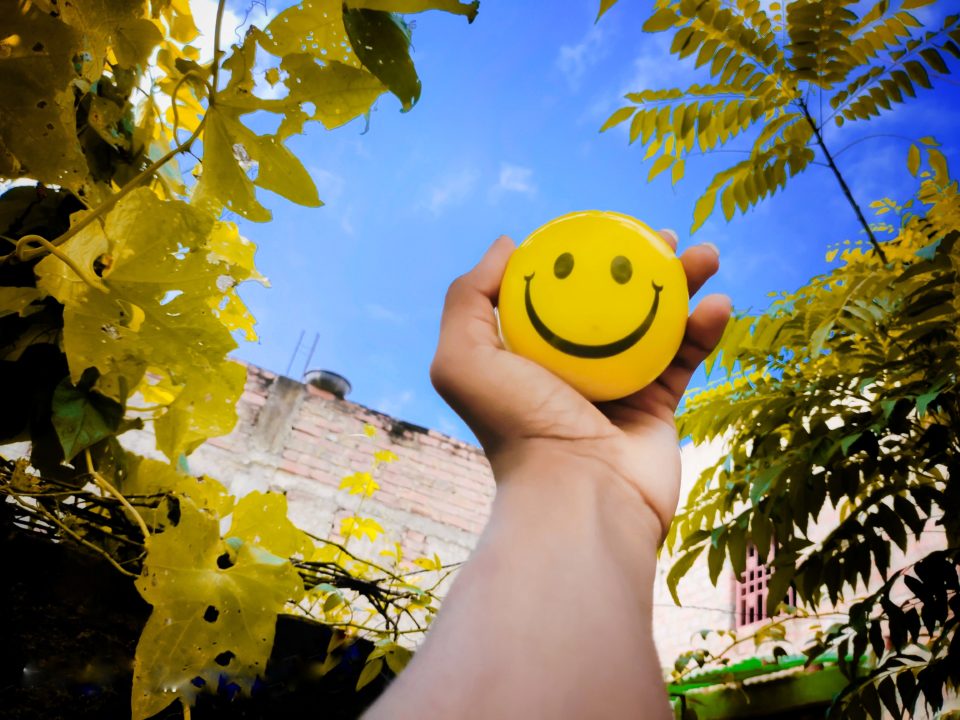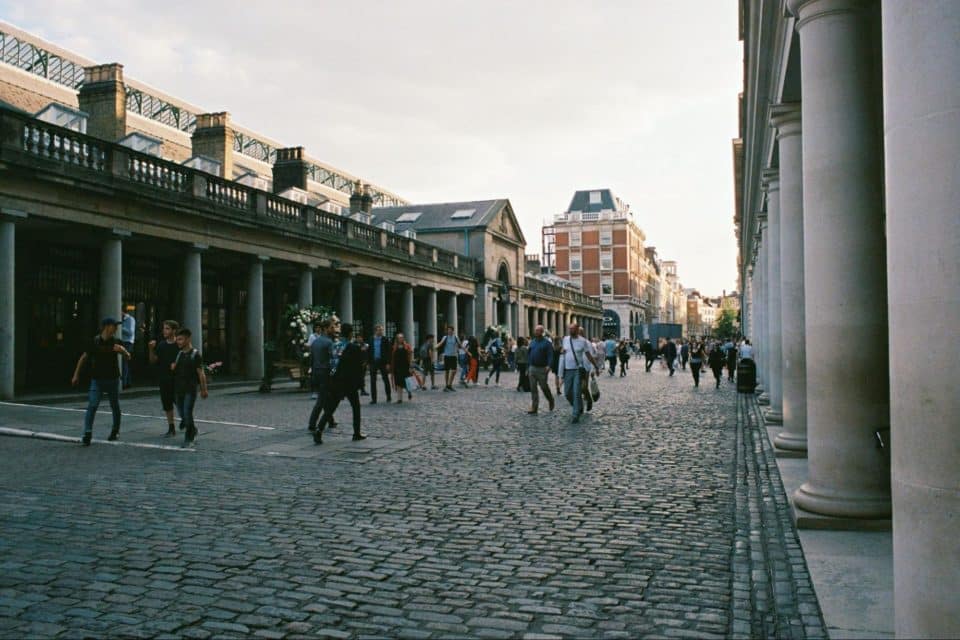Future Trends in Sustainability: One Pumpkin
One Pumpkin is a consultancy that helps businesses improve their environmental and social sustainability. Clients include Microsoft, Warner Bros, Reckitt Benckiser and Honeywell. We spoke to Georgina Stevens, One Pumpkin’s Founder and Director, on upcoming sustainability trends.
How would you describe yourself in very simple terms?
I help companies future-proof their businesses. I help them understand environmental and social change and work with them to build a healthier more resilient business.
The way that I help clients depends upon their current business model, their challenges and opportunities, and also the resources and internal landscape they have. I start off by looking at their business model, and help them to understand the benefits of becoming a sustainable business and plan how to achieve it; whether by working across the organisation, or by collaboration with other stakeholders and competitors.

Which of your projects do you think were the most future-focussed?
I did an interesting project with Reckitt Benckiser, a major FMCG parent brand. The project involved reviewing political, social and environmental resource constraints. It showed me how powerful it can be when a company understands how things will look in five or ten years’ time, and how it can provide a substantial competitive advantage. Their products use a lot of minerals and natural resources such as phosphorus, so the project was about looking at the long-term viability of those resources and the alternative available to them.
My work with three independent films is also very interesting and potentially very impactful. I’m helping them understand the environmental and social impacts of making their films. We are looking at their carbon footprint of course, and helping them reduce it through reviewing the travel to set of the cast, crew, and the audiences, by using efficient and low impact equipment such as solar generators and LED lights, by using hotels who also have strong sustainability policies, and through use of local materials. We’ve even had bicycles whizzing around on different sets, instead of people using taxis. We are also helping them to reduce their waste as far as possible by recycling sets and materials, and using recycled sets where possible, not using bottled water, but using water fountains instead and reusable water bottles, and working with local charities to use any left over food. We are also helping them to ensure they have a positive social impact through employing local people and services, and keeping any noise down during the evenings.
We’re also having a really interesting discussion about sustainable behaviours within the films themselves and how they can be made to be aspirational. It’s great to lower the environmental impact of projects, but you can make a much bigger impact by trying to influence audience behaviours.
Who made the decision to make it a more sustainable movie?
I’m working with an organisation called The Low Carbon Innovation Fund who fund a number of innovative low carbon initiatives. The three films that I’m working with already had a desire to do that which is how they came across the funding in the first place, but it’s an added incentive for them and there’s an added impetus to tell the story of how it was done.
The sustainability message will be part of the films’ marketing – there’ll be carbon footprints on the credits, which has never been done before. We’re also putting together a Making Of video, to show how it was achieved, because as we know with all of these things, it was simple really.
As well as being able to access this funding, the project will save them money – for example, it costs a fortune to have skips taken away, but a well planned recycling programme can have a minimal cost or even be free!
(One Pumpkin can help companies to find and apply for appropriate funding for their sustainability initiatives.)
Any other projects you’re really proud of?
I’m also working with Warner Bros. on their sustainability strategy, as part of another consultancy, C&E Advisory. They recently launched the community investment part of the programme, called ‘Warner Bros. Creative Talent’. It’s all about leveling the playing field for young people from all backgrounds to get into the creative industries, through provision of scholarships, training courses, internships, work experience, mentoring and so on. These industries are quite difficult to get in to, but at the same time they’re crying out for a wider cohort of young people to broaden the talent pool and widen the industries’ perspective. Its very exciting to work with large businesses who understand the issues and can really make a difference.
Which do you think holds more potential for businesses – the social side or the environmental side?
They’re both important. If you ignore one side then you’re missing huge opportunities and your strategy is flawed. The real wins are where the social strategy works in tandem with the environmental strategy.
In the UK, people naturally care more about social issues. The general understanding of environmental issues is around the level of recycling or maybe turning their lights off, because we still cannot see the direct impact of our actions on the environment, but this will change with increasing product transparency and increasing extreme weather events.
So what’s the next step regarding environmental education?
It has to be about making sustainable behaviours much more aspirational. Advertising agencies and script writers have got such a big role to play here – I don’t think they’ve stepped up to the mark yet. There’re some amazing examples of hilarious or interesting environmentally-focused ads, but they’re few and far between – and they’re usually by niche agencies or from the NGOs such as Greenpeace, who are doing an amazing job at engaging people on issues, and doing it in a very interesting way – the Unfriend Coal campaign was very very funny, as was the Barbie it’s over campaign!
Sustainable behaviours also need to be integrated into mainstream programming to make them normal or where possible aspirational – not worthy, boring or complicated. Why don’t we see more people cycling in films or on Coronation Street for example? We can of course help them develop those characters and behaviours if any script writers or ad agencies need help……!

What are the key issues brands should be thinking about now, if they want to be more successful in five years’ time?
Brand managers need to understand the impact their products have on the environment and on the people involved in its production or use. They need to be fully aware of all the sustainability issues and understand how the supply chain is changing and how this may put the brand at risk, either financially or in terms of reputation.
Brand managers also need to be comfortable with the transparency that social media brings, and ensure that they know all the facts, before their consumers do, and ensure it is a story they are proud of. Mcdonalds is using this to its advantage, and are opening the doors of their supply chain to the public through their Quality Scouts campaign. I am actually going to be one of them, so I am looking forward to seeing behind the golden arches and seeing how things are run.
Sustainability messaging also needs an integral part of a brand – it should not be a separate campaign. And this will only happen successfully where sustainability is a fundamental part of the business model, which is why so many companies struggle with this.
In short, know your story, tell your story (and listen to what people have to say about it) and live your story.
Where do you think the big opportunities and risks lie?
There’s a huge opportunity in terms of the circular economy – turning waste into a resource. It’s so straightforward but still so little done, but I think more and more companies will realise how sensible it is to work with other companies to take their waste, or use waste from another company as a resource for their own products.
There are some great examples of companies who are starting to use it – M&S for example. Last year, they launched a beautiful cashmere coat that’s made from recycled cashmere from returned jumpers, they now have several lines made from old M&S products. Interface have been recycling old carpet tiles into new product for years, and they are now supporting poor coastal communities to collect old fishing nets which cause harm to the marine environment, and they are also making them into new carpet tiles.
The risks are of course around reputation risk if you do not know what is happening in your supply chain, and even more seriously by having a business model that is unprofitable in a changing world.

Do you think the idea of ‘one planet living’ – living completely within our means – will happen in our lifetime?
It think it will happen but it’s a long way off yet – maybe 2050 if we get some major things right.
There are some keys things that I think will speed the process up – such as enabling technology that will improve the transparency and information we have at our fingertips about companies and products and issues which will help us to make informed decisions about how we spend our money and our time. This will help to show everyone how their lives impact the wider world, and help them to change that if they want to, and will also make individual/corporate environment budgets feasible – like a carbon budget but more detailed, and taking some key learnings from the Puma environmental profit and loss work. This technology will also help to clarify some key issues and remove the haze that some mainstream media companies like to maintain about those issues, which is a major cause of apathy. They have been incredibly effective at this – for example despite 97% of the scientific community agreeing that climate change is real and man-made, only 43% of people in the UK believe it, because some key papers like to keep telling their reader base what they want to hear.
I also think that a sophisticated waste charging structure will significantly help. If consumers are charged for each item they dispose of – depending on its environmental impact, then suddenly people will be motivated to view the things they buy differently instead of as disposable items; this will stimulate the rental market, and companies will also have to completely review how they make things, and how they package them. It will also make waste management a very lucrative business and open up many more discussions between companies who can work together to use each others waste, or how to make something useful with their own.
And of course, we desperately need more investment and less opposition to renewable power. We have so much solar energy which is just going to waste right now, just because the oil companies haven’t figured out how they can make as much money out of it, as they can from oil.
Are there any other brands or sustainability innovations that you want to tell me about? What’s rocking your world at the moment?
Avaaz is a campaigning network who’ve mobilised twenty-one million members in the last five years to sign various petitions and take action on stuff. They’re allowing people to voice their opinions, and to be heard, who didn’t previously know how to. Also 38 degrees are doing some great stuff in this area too.
Hugh Fearnley-Whittingstall has to get a mention. He’s been working on fish discard reform for about three years . Finally the bill’s been changed so a load of fish will stop being wasted.
Lush has got their consumers involved in campaigning on a myriad of issues. They’re one of the first companies in London to pay a living wage, they don’t have excess packaging and their products are amazing.
eBay don’t get enough sustainability love, even though everything they do is about reusing and reselling stuff. They’re also working with Patagonia to reinvigorate second-hand selling.
I also have to say Wikipedia – they’re helping people to be better informed about stuff and doing it through crowd-sourced information. For me, that’s transparency driving greater knowledge in consumers.
The other thing I want to say is that I’m not excited about new innovations. For me it’s about the evolution of the solid ideas that are out there already. Solar panels and electric cars are getting more effective, for example. I’m also excited about collaboration between big and small companies – swapping waste, swapping products. Climate change is a bigger issue than any of these companies can solve on their own.
Image credit: archer10 (Dennis) via Compfight cc, kevin dooley via Compfight cc
Related Articles
Below are other articles from our blog that cover similar topics:



